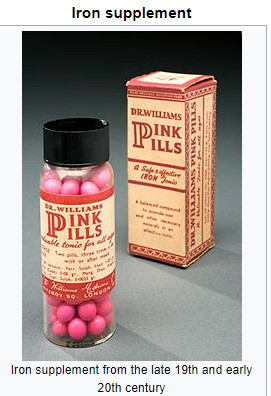Millennium Project
Rob Forsyth
Deddington has been affected by several plague and pestilences in its long history.
The Black Death in the 14th Century
Planned research into whether Deddington was affected has been curtailed by closure of the Oxfordshire History Centre iand the Bodleian Library. In the meantime it is well worth taking a look at Stephen Fisk's website Abandoned Communities; the section on The Black Death refers to two Oxfordshire villages completely wiped out by it.Victoria County History - which can be read on British History On Line - seems to contain no reference to it having affected Deddington; which is not to say that it did not, only that it is not an information source.
Of local interest is what Stephen writes about Stowe "The parish of Stowe lies in north Buckinghamshire. At the beginning of the seventeenth century it contained four villages, but only one of them, Dadford, is still there today. The other three, Lamport, Boycott, and the village of Stowe itself, have disappeared." The reason given is that it was 'cleared'. According to Buckingham historians the Temple family enclosed the farm land for a Deer Park and the villagers were forced to move elsewhere. All that is left of Stowe village is the church.
Cholera outbreak on the ship Brutus 1832
On the 18th May The Brutus (Capt Neilson) sailed from Liverpool bound for Quebec and Montreal. Onboard were some 330 passengers, mainly emigrants. Amongst them were 72 from Deddington. Cholera broke out very early in the voyage forcing the ship to return to Liverpool. Almost one third of the passengers died. It seems at least 17 and possibly 21 Deddington names were among them. The full story - including newspaper reports leading to a public appeal - has been researched by Jon Malings whose ancestors were a well known Deddington family.
C19th 'Anti-vaxxers'
There was strong opposition in many quarters to the Anti-Vaccination Acts of 1840 & 1853 which made vaccination compulsory; mainly based on poor medical knowledge of this revolutionary health step forward. Anti- vaccination organisations were formed and demonstrations and pamphlets abounded. Deddington was no different. In 1898 the vaccination law was amended to allow for exemption based on conscience. This is where the phrase 'conscientious objector' originates.
More about several strong Deddington anti-vaxxer's protestors, a local demonstration attended by the President of the Anti-Vaccination Society and letters to the papers can be found HERE
The 'Spanish 'Flu 1918/9
The 1918/19 outbreak of 'Spanish 'Flu reportedly killed more people than WWI so I investigated deaths in the parish during the epidemic years of 1918/19 using the recent Oxford Family History Society graveyard survey and parish registers. The former is not a complete record of course because not everyone was buried in the churchyard; however, there is no apparent spike in deaths for those years compared with several years either side, so the chances are that the village, in its rural isolation at that time, got off lightly.
In her novel Hostages to Fortune (published June 1933, Jonathan Cape. Re-published 2003, Persephone Books) Elizabeth Cambridge refers to the pandemic in Deddington and the severe effect it had on her husband in Chapter Five (5Mb pdf) but does not mention any deaths.
In fact Elizabeth Cambridge was the pseudonym of Barbara Hodges (née Webber), a doctor's daughter who was born in 1893 in Rickmansworth. She grew up first in Plymouth and then in Westgate-on-Sea and went to Les Marroniers finishing school in Paris; She published her first short story in 1910. She carried on writing until war broke out in 1914. She was a VAD nurse for a short time before marrying George Hodges, a doctor in Deddington and son of a doctor. She had two sons and a daughter. Hostages to Fortune was her first novel. Five more followed between 1934 and 1940, all receiving great critical acclaim. After the war she and her husband moved to a village near Battle in Sussex, where she died of tuberculosis in 1949. More about Barbara and George can be found in 'Between the Wars'.
 | An extract from the Banbury Advertiser on 30 October 1919 talks about the after effects of having had the 'flu. It reads very much like 'Long Covid' - the name given to the long lasting downstream effects of Covid-19 infection. But, as the article concludes, they had 'Dr Williams' Pink Pills' then! Image courtesy of: https://en.wikipedia.org/wiki/Iron_supplement |
Covid-19 2020
This is a record of how Deddington has coped with this terrible event. Newsletters, the DN, DoL and Social Media have been the information channels and tellers of good neighbour stories. The village was immediately divided into zones with 'Captains' to contact if help was needed and local businesses and organisations have had to adapt to the very different and continually changing circumstances. Unusually good weather helped ease the strain and everyone said 'thank goodness for digital technology' as groups gathered on Whatsap, Zoom and Skype to talk and chat. It has been an outstanding example of a community coming together for mutual support in a crisis. Amongst it all the 75th Anniversary of VE Day was still marked with great enthusiasm albeit without any of the planned events in the Market.